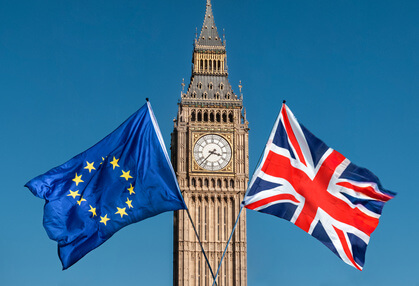UK Government’s Post-Brexit vision for Employment Law
Will workers continue to enjoy rights granted under EU law?
On 12 July 2018, the government published its much-anticipated White Paper titled ‘The future relationship between the United Kingdom and the European Union’. The White Paper details the UK government’s vision of what they are seeking to achieve in negotiating the UK’s exit from the European Union.
Many UK employment rights are derived directly and indirectly from EU law, including TUPE, the Working Time Regulations, collective consultation requirements, agency worker protection and discrimination. There has been much speculation that Brexit would bring about various changes to UK employment law, including changes to the Working Time Regulations and a relaxation on the restrictions on harmonising terms and conditions following TUPE. However, the White Paper proposes that there will be no regression of labour standards following Brexit. This means that existing workers’ rights enjoyed under EU law will not be immediately repealed once the UK withdraws from the EU.
The UK government has also stated its intention to uphold the high standards of employment law that derive from its International Labour Organisation (ILO) commitments. The ILO is a United Nations Agency which sets labour standards, develops policies and devises programmes promoting decent work for all men and women. The ILO’s eight fundamental conventions protect rights such as equal remuneration, collective bargaining and the abolition of forced labour.
Should the UK Government’s ‘non-regression’ approach to labour laws be implemented, the impact of changing rights and obligations will be lessened for both employers and employees. However, it remains to be seen whether the UK and EU can strike a deal and therefore it is too early to predict precisely how UK employment rights will be affected come 29 March 2019.

